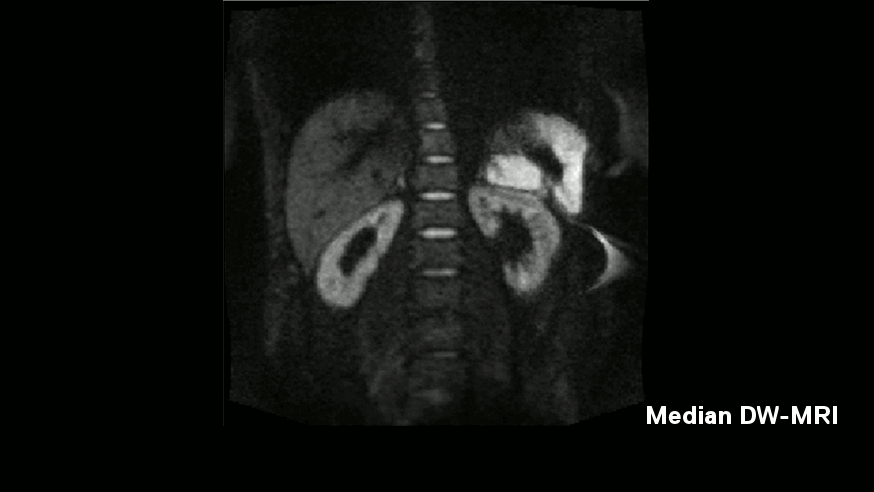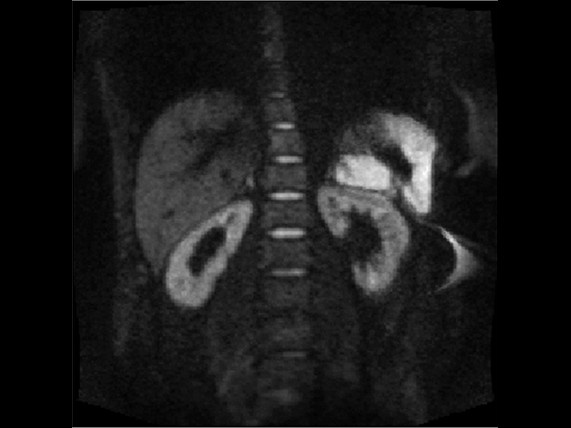
A simple change in the processing of data from scans of cancer patients could sharpen images taken of tumours, a new study reveals.
Researchers at The Institute of Cancer Research, London, found it was possible to compensate for the movement of tumours caused by a patient’s breathing during scans taken by magnetic resonance imaging (MRI).
The team analysed MRI data using the median organ position, which excludes extreme positions outside typical organ movement, instead of the mean position that is calculated by current systems.
They found that changes in the collection and processing of images made the final image sharper and more accurate, potentially improving the quality of the information provided to doctors, without requiring expensive new equipment. The technique could even shorten scanning time, which would be more comfortable for patients.
The study is published in the Journal Physics in Medicine and Biology and was funded by Cancer Research UK, with additional support from the EPSRC Cancer Imaging Centre, the NIHR Biomedical Research Centre and Clinical Research Facility at The Royal Marsden NHS Foundation Trust and the ICR, and Siemens.
Diffusion-weighted MRI measures the movement of water molecules in a patient’s tissues, which can help doctors to detect diseases such as cancer. But during standard abdominal MRIs, respiratory motion can cause some of the organs to look blurred when images are produced using mean organ position.
Other methods can be employed to improve image quality – such as asking patients to hold their breath during scans, or applying computationally intensive image processing techniques – but they can increase processing or scanning time.
ICR scientists scanned 10 healthy subjects with diffusion-weighted MRI, and recorded a series of images of their abdomens over a period of 10 minutes, measuring respiratory motion in three directions.
Observations from two experienced observers consistently rated the median-calculated images as visually sharper than those produced using the mean. The median-calculated images decreased blurring of physiological features within tissue, while making no difference to images of non-moving structures such as the spine.
Calculating median organ position requires storing each MRI measurement separately, but needs minimal extra data storage, so it should be possible to improve MRI image quality using standard equipment with no added hardware.
Professor Martin Leach, Leader of the Magnetic Resonance Team at the ICR, said: “MRI scans of patients’ chests and abdomens can help doctors to diagnose diseases like cancer but the movement of organs through normal breathing can cause the image to blur, making it more difficult to interpret the results. Our study shows that calculating the median, or middle, value for organ position throughout a scan produces sharper images than using the mean, or average, position as used by MRI today.
“While other image optimisation techniques exist for MRI, using the median is a really simple way to improve image quality, with none of the drawbacks of other options. Siemens gave us direct access to the data collected by its MRI equipment so we could calculate median organ positions to produce clearer, sharper images, in the same time as a normal scan and with very little added processing. In the future a software update could potentially extend this functionality to all MRI machines, which could help doctors to identify and assess tumours more easily.”
